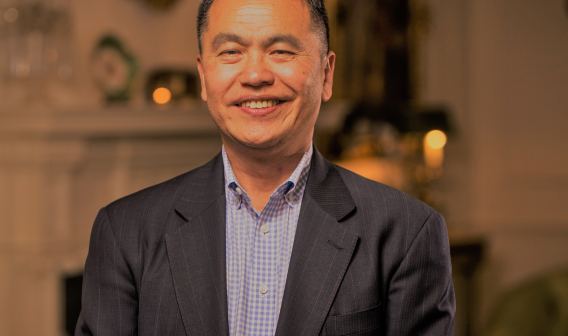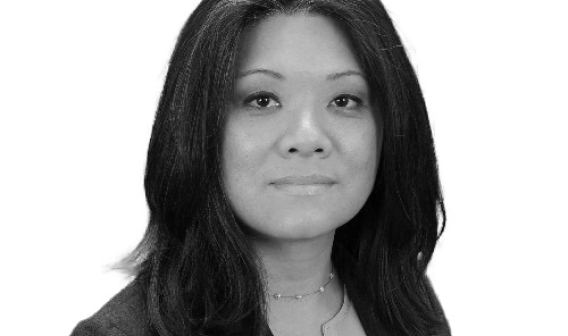El Koubi: You touched on the employee value proposition and what this looks like as a career. When we talk about AI, there’s this notion that maybe AI changes the way we work. In some cases, folks predict it will destroy some jobs. What’s going on in the cyber labor market? Are you seeing less demand for cyber talent, or is there an inexhaustible demand?
Medairy: One consistent thing that’s talked about at the national level in our country is the cyber workforce crisis. We just don’t have enough cyber professionals to support the massive demand across our entire nation. That includes the public sector, federal clients, and the commercial sector. I think AI will certainly help fill some of those gaps. Cyber is all about speed. AI will drive automation and acceleration around detection and other elements of the cyber defense kill chain. But more importantly, it’s going to free up analysts and cyber operators to focus on more of the heavy lifting and true analysis that we need to really spend time on.
AI may shift where people are focusing, but I think it’s going to help accelerate and scale. Things continue to get more complicated and sophisticated. We’re finally getting enterprise security under control and there are still a lot of breaches. Cars, space, the power grid, all the rest of the critical infrastructure sector — everything is hyperconnected now. The problem is getting bigger and we can’t just throw more and more people at it. We need talented cyber professionals, augmented by AI and machine learning, to combat this significant challenge we’re facing.
El Koubi: You’ve talked about what Booz Allen and your team do to support the U.S. government and partners in this area relative to adversaries, including foreign nation-states. But there’s a certain amount of international coordination on these issues as well. How important is international coordination to our national cybersecurity measures?
Medairy: Partners and allies are a key piece of the puzzle. We have this notion of one battle space, where the adversary looks at our nation as one target-rich environment. The reality is that the adversary is executing activities and campaigns globally. The more we can collaborate with partners, the more we can piece together the picture of what’s happening and be able to address it at speed and pace. Collaboration, information sharing, and maintaining strong partnerships with our allies are really critical.
As we’ve seen with things like Volt Typhoon, when we’re relying on partners, allies, and their critical infrastructure in certain countries, that directly impacts our military readiness and capabilities in those areas as well. Partnership will continue to be important in the future to get the holistic global picture of what’s happening, so we can best respond from a cyber defense perspective in our nation.
El Koubi: Cybersecurity is one of the key industries my team at VEDP is cultivating. Give us a sense of what the cybersecurity industry in Virginia is like. How does that fit into the overall industry as we think about the United States and globally?
Medairy: Because some key U.S. federal government agencies and departments in cyber are in Virginia, there’s a need to build a cyber workforce to support them. I view Virginia as a cybersecurity talent incubator, and I think we do an amazing job in building talent and accelerating that talent into mission and new skill sets.
Because we have some of the most complex cybersecurity missions, and some of the best talent nationwide, there’s naturally going to be a group of entrepreneurs in that population. Because those folks are in hand-to-hand combat with the adversary, they’re able to anticipate over-the-horizon threats and needs from a technology perspective. I see a lot of interesting startups and technology companies coming out of Virginia and feeding that tech ecosystem I talked about.
A few years ago, part of our DarkLabs team had an interesting idea, a threat detection, hunting, and detection engineering concept. We incubated it within Booz Allen as SnapAttack. As we started market testing across both federal and Fortune 100 clients, it quickly became apparent that this was a product. We had an interesting concept that was market-backed and market-validated, and Booz Allen made the strategic decision to spin SnapAttack into a new company.
We partnered with a local venture capital firm to do a Series A funding round, and we launched it. Booz Allen maintained a strategic partnership, but this was a standalone entity, and they embedded themselves in the cybersecurity startup ecosystem. They continued to scale their product. They innovated in ways that we never anticipated and built something really special.
In February, Cisco, who had bought Splunk, acquired SnapAttack. Now, SnapAttack is fueling innovation in defensive cyber operations that’s going to power the future of Splunk and Cisco. That’s just one great example of what’s coming out of Virginia. Amazing talent — folks who are close to the mission, who have this amazing tradecraft, who can anticipate both the threat and future capability needs. Those with entrepreneurial spirit are launching startup companies that have the opportunity to change the world. That’s happening in our own backyard here in Virginia.
I think Virginia is a talent incubator and accelerator. I think we’re contributing to the global startup ecosystem, building some emerging tech that’s transformative by itself, but then through acquisition, transforming big companies as well.
We also did something pretty cool a couple of years ago, in recognition that we’re a big company, but a lot of startups also have amazing ideas. One problem the startups have is translating their capability and accelerating into the U.S. federal government. One of our nation’s strategic advantages is our entrepreneurial spirit and all this amazing tech we’re developing. The question is, how do we use it to our strategic advantage to accelerate government and national security?
One conclusion we came to is that we’ll invest and build stuff within the walls of Booz Allen that’s really special and going to help our clients. We’ll continue to do that. We may build things like SnapAttack that may be best suited as a startup. But the strategic question we had was: How do we help accelerate some of these emerging tech startups so they can best help our U.S. government clients? We concluded that we needed to stand up our own venture arm. So we established a $100 million venture capital fund, Booz Allen Ventures.
We do targeted investments ourselves now in new and emerging companies. That’s an important role we think we can play in that ecosystem — to be a startup accelerator, not only from a funding perspective, but to help teach them the government mission, help them engage in conversations with those clients, and translate their capabilities to accelerate our clients’ mission outcomes.
El Koubi: That kind of collaboration is really driving and enriching that ecosystem. I’d like to turn back to talent. Give us an overview of what’s happening in the cyber talent pipeline in terms of strengths and weaknesses you encounter when recruiting people to Booz Allen. What would you tell university folks? Or folks in the military who are transitioning to civilian life and looking to transfer their skills? Give us a sense of the state of the pipeline — good, bad, and ugly.
Medairy: It’s always great to have classroom experience, but putting those insights into action is really important. Engaging in the cyber defense world takes a multidisciplinary skill set. You need folks who do embedded systems and reverse engineering. You need computer scientists and data scientists. You need AI/machine learning professionals and engineers and, potentially, industrial control system engineers. There’s not one single skill set needed from a cyber perspective. Cyber is defined by being able to fuse multidisciplinary skill sets to get a holistic perspective around the problem. I think that’s what’s really cool about cyber. It offers an opportunity for so many different folks of different backgrounds and experiences to come into this world and have an impact.
El Koubi: What’s your view of big trends the next five or 10 years? For somebody thinking about getting into this business, is there anything you’d add about challenges and opportunities for impact ahead?
Medairy: I think that we’ve got to fundamentally modernize and transform our infrastructure to infuse core zero-trust principles. That’s going to pave the way for a series of activities that will happen probably over the next three to five years.
El Koubi: What does that mean, zero-trust principles?
Medairy: It’s modernizing your architecture and infrastructure to implement better data security, to look at the future of identity and how you actually protect and defend your networks. Look at principles of least privilege holistically to modernize both your infrastructure and cyber operations defense. I think that’s going to drive a lot of activity over the next couple of years, and it really comes down to infrastructure modernization.
I also think AI will be the future of defensive cyber operations. It’s going to transform how we structure and run a security operations center. It’s going to change how we fuse and analyze cyber data across an enterprise. We’ve spent a lot of time bringing all this big data together and having security operations teams run through it. We’ll be able to do that at machine speed now.
I think cybersecurity is going to move more to the edge. We’ll conduct more sophisticated analytics, using things like agentic AI at the edge, at the point where data’s collected, so we can detect and respond to sophisticated adversary tradecraft faster. I think that’s going to lead us on a journey over the next several years around the application of our artificial intelligence.
Another area is this notion of cyber in the physical world. Hyper-connectivity is driving this. Electric cars are basically computers. There’s a massive set of activities happening in space. We’re looking at the power grid and the critical infrastructure sector. Things that were never connected before are connected. It takes an attack surface that we spent years and years bounding and exponentially expands it and makes it more difficult to defend. So we’re heavily investing in the intersection of cyber and the physical world, and how to best protect and defend that.
We’ve been talking about post-quantum cryptography. The National Institute of Standards and Technology has offered some guidance around post-quantum readiness for national security systems. We don’t know when our adversaries will have quantum supremacy, but we need to be ready. There’s going to be a flurry of investment and activity around that over the horizon.
Those are all areas that will define our future. It’s something we spend a lot of time thinking about. And I think it’s something that our clients are working through as well. It’s going to define investment and activity over the next couple of years.
El Koubi: Brad, thank you so much for this fascinating, insightful conversation, for everything you and your team are doing to enrich and build Virginia’s incredible cybersecurity ecosystem and industry — and most importantly, for keeping our country safe, along with many partners now and in the future in this evolving domain.
Medairy: It was a great chat. Thank you.
Full the full interview, visit www.vedp.org/Podcasts





